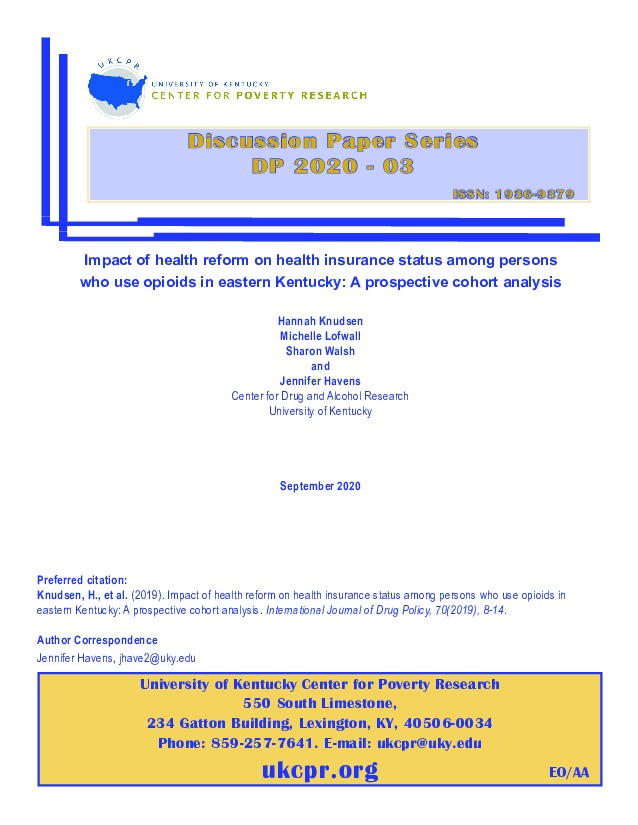Health insurance improves health and reduces mortality. Expanding insurance is a central feature of the Affordable Care Act (ACA). Persons who use drugs (PWUDs) have historically been at high risk of being uninsured. It is unknown if Appalachian PWUDs, who live in an extremely economically distressed region, are more likely to be insured since implementation of the ACA. Data from a cohort of 503 PWUDs from eastern Appalachian Kentucky, who were interviewed at seven time-points between 2008 and 2017, were analysed using mixed effects regression models. At baseline, only 33.8% of participants were insured, which increased to 87.3% of the cohort at the last follow-up interview. The final multivariate model, which included baseline characteristics and interactions by time, indicated there were significant baseline differences in insurance status by gender, age, education, income, and history of injection. Differences in the predictive margin probabilities of being insured across these groups had dissipated by the final follow-up interview. After Kentucky’s implementation of the ACA, this cohort of Appalachian PWUDs made substantial gains in obtaining insurance that far exceeded the increases reported in national studies.
Research
InequalityPDF Thumbnail
